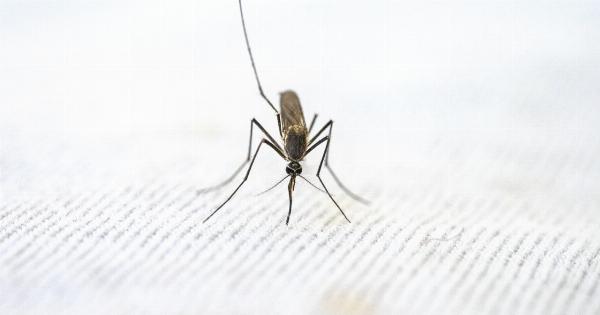Parasitic infections affect millions of people around the world. These infections, caused by parasites such as worms, ticks, and mosquitoes, can lead to severe health issues and even death if left untreated.
However, thanks to the groundbreaking work of Dr. William Campbell, a distinguished scientist and expert in parasitology, effective treatment options are now available.
The Fight Against Parasitic Infections
Parasitic infections have plagued human societies for centuries. They have been particularly prevalent in regions with poor sanitation and limited access to medical care.
These infections can range from mild to severe and are often difficult to diagnose and treat. Given the complexity of parasitic life cycles and the various mechanisms they employ to evade the host’s immune system, finding effective treatments has been a daunting task.
Dr. William Campbell: A Pioneer in Parasitic Disease Research
Dr. William Campbell dedicated his life to studying parasitic infections and developing innovative therapies to combat them. Born in Ireland in 1930, he obtained his Ph.D.
in zoology from the University of Wisconsin-Madison and embarked on a remarkable career that would earn him international recognition.
In the 1970s, Dr. Campbell joined Merck & Co., Inc., a leading pharmaceutical company known as MSD outside the United States and Canada.
Here, he spearheaded a research program to discover drugs for neglected tropical diseases, including parasitic infections. His seminal work focused on river blindness, a debilitating disease caused by the parasitic worm Onchocerca volvulus.
Revolutionizing Parasitic Infection Treatment: Ivermectin
Dr. Campbell’s tireless efforts resulted in the discovery of a novel compound called ivermectin. This drug revolutionized the treatment of several parasitic infections, particularly river blindness and lymphatic filariasis.
Ivermectin demonstrated unprecedented efficacy against these diseases and proved to be safe, affordable, and easy to administer.
The Impact of Ivermectin on Global Health
The introduction of ivermectin had a profound impact on global health, especially in regions where parasitic infections were endemic.
Mass administration campaigns, endorsed by the World Health Organization, distributed the drug to vulnerable populations, thus significantly reducing the burden of diseases such as river blindness.
As a result of these efforts, millions of individuals who were at risk of blindness or severe disability were protected.
Communities that were once ravaged by the devastating effects of these infections saw newfound hope and were able to regain control over their lives.
Awarding Dr. William Campbell
Due to his remarkable contributions to the field of parasitic infection treatment, Dr. William Campbell was awarded the Nobel Prize in Physiology or Medicine in 2015.
This prestigious recognition not only highlighted his scientific achievements but also shed light on the importance of addressing neglected tropical diseases.
MSD, in conjunction with the Nobel Committee, continues to honor Dr. Campbell’s legacy by actively funding research and initiatives to combat parasitic infections.
They strive to support groundbreaking discoveries that can further improve treatment options and bring hope to the millions of individuals affected by these diseases.
The Ongoing Battle
While significant progress has been made in the fight against parasitic infections, challenges persist. Some parasite species have developed resistance to existing treatments, necessitating ongoing research to develop new drugs and therapy regimens.
In addition, the impact of climate change and globalization on the spread of parasitic infections cannot be overlooked. As climate patterns shift and travel becomes more accessible, previously unaffected regions may become vulnerable to these diseases.
Thus, continued investment in research and public health efforts is essential to address emerging challenges.
To accelerate progress in combating parasitic infections, collaboration between governments, pharmaceutical companies, research institutions, and nonprofit organizations is crucial.
By sharing knowledge, resources, and expertise, stakeholders can work together to develop comprehensive strategies to prevent, diagnose, and treat these infections effectively.
Furthermore, continued investment in research and development is essential to drive innovation and discover novel therapeutic options.
The search for new drugs, vaccines, and diagnostic tools must remain a top priority to ensure the well-being of millions of people affected by parasitic infections worldwide.
Conclusion
Dr. William Campbell’s groundbreaking discoveries in the field of parasitic infection treatment have transformed the lives of millions of people affected by these diseases.
His work serves as an inspiration for scientists, healthcare professionals, and policymakers to prioritize research and public health interventions to combat neglected tropical diseases.
Through ongoing collaboration, innovation, and investment, we can build upon Dr. Campbell’s legacy and continue to make significant strides towards achieving a world free from the burden of parasitic infections.






























